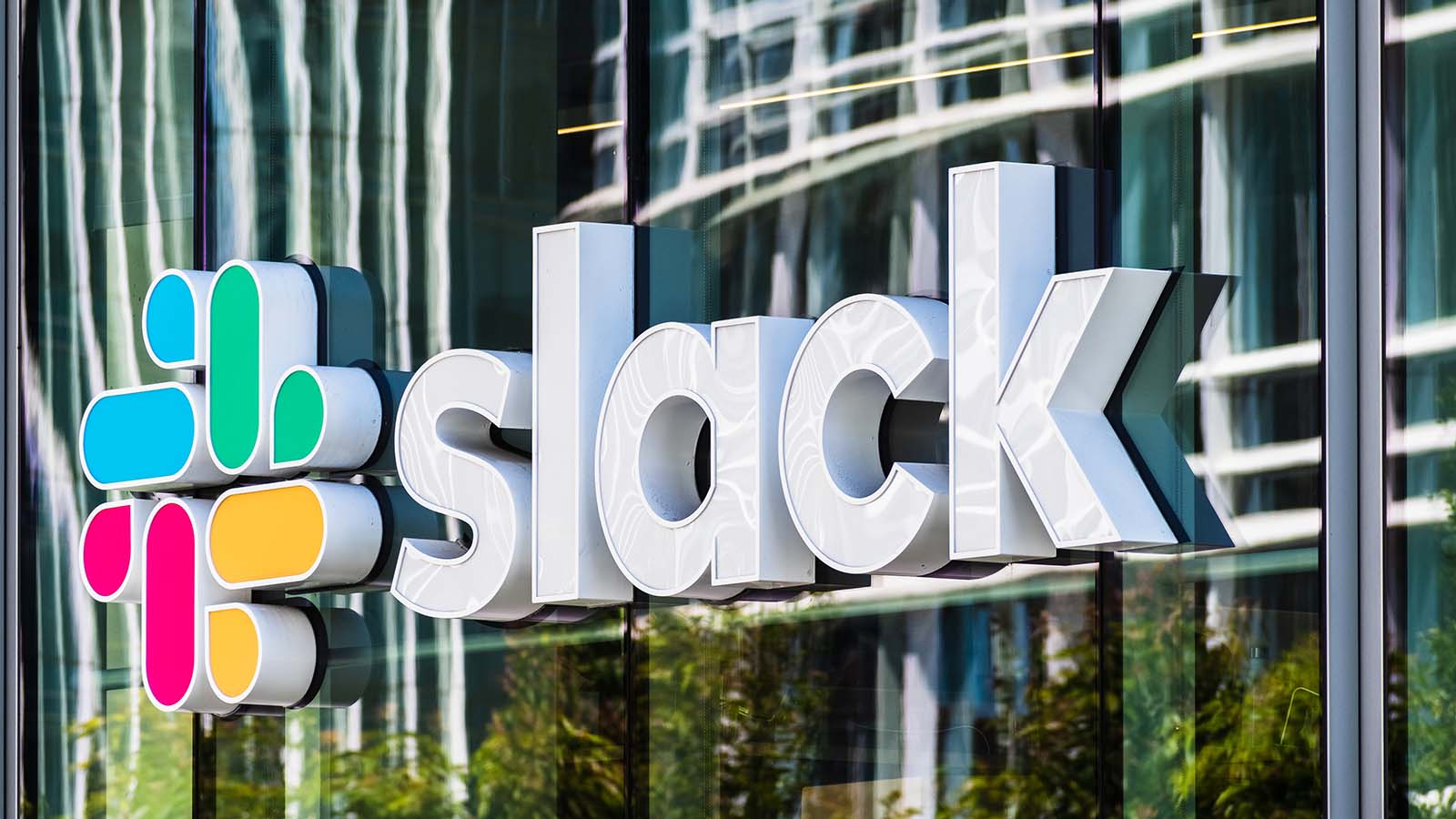When the U.S. first suffered the initial disruption from the novel coronavirus pandemic, many companies scrambled to find work-from-home solutions. Immediately, Slack Technologies (NYSE:WORK) quick rose to the forefront. Slack specializes in organizational communication platforms that efficiently sharing data among various parties. Following the crisis, such mechanisms became all the more critical, bolstering the bullish case for Slack stock.

On the surface, Slack Technologies might not strike you as a necessity. Who needs communication platforms when you have email? But the problem is that this ubiquitous messaging system is rather inefficient.
For one thing, all emails are weighted identically. Therefore, whether you’re getting junk mail, a personal note that can wait or an urgent message from your boss, it’s all the same – you’ve got mail!
In sharp contrast, Slack represents its own ecosystem to which your team members are also connected to. Therefore, it’s much easier to get someone’s attention because your message will pop up on their screen. Thus, truly urgent matters or questions that require a quick answer can be handled much more easily and effectively than via email. This is one of the pivotal reasons why Slack has caught on and why Slack stock has soared this year.
Another distinct advantage for the company is its facilitation of channels. Rather than isolate your communication to emails – which are only privy to those included in them – business units can create archivable and organized data flows within channels. This way, everyone who has access to the channels can understand who’s doing what and from which documents they are working.
It’s a simple but incredibly convenient way to disseminate information.
Advancing Technologies Makes Slack Stock Viable
Though Slack stock clearly has a pandemic tailwind, it’s fair to ask the obvious question: what happens to the underlying company when the crisis is (thankfully) no more? Will WORK shares fall off a cliff or will they continue charging higher?
Not surprisingly, there are high-level debates occurring regarding this very issue. On one hand, the Wall Street Journal’s Chip Cutter reported in late July that companies may be rethinking the concept of remote work. According to Cutter’s article:
Projects take longer. Training is tougher. Hiring and integrating new employees, more complicated. Some employers say their workers appear less connected and bosses fear that younger professionals aren’t developing at the same rate as they would in offices, sitting next to colleagues and absorbing how they do their jobs.
On the other hand, the WSJ’s Robert I. Sutton argued that remote work is here to stay, even when the pandemic fades away. If so, this would obviously be a positive for Slack stock. At the core of both arguments, though, is platform effectiveness. Working from home can work on a prolonged and mass scale if we have practical communication platforms.
Moreover, what may end up tiling the scales in favor of Slack stock is fortuitous timing. According to data from NCTA: The Internet & Television Association, the fastest broadband speed in the U.S. in 2007 was only 16 megabits per second (Mbps). Ten years later in 2017, the metric was at 2 gigabits per second (Gbps).
Sometime in the future, we could see top broadband speeds hit 10 Gbps. Due to the lowered cost effect of advancing technologies, this implies that most Americans will soon have reasonable access to Mbps speeds in the hundreds.
In other words, the broader technology is now easily capable of remote work.
When It’s Doable, It Shall Be
In the movie Wall Street, Michael Douglas’ character Gordon Gekko can be seen talking to a very large and unwieldy cellphone. Back then, that was advanced technology. Today, it looks like someone calling in an air strike.
With greater innovations come condensed power and greater accessibility. Modern smartphones are a fraction (both in terms of size and cost) of the cellphones of old. And only when the tech was broadly applied to everyone could we truly realize a telecommunications revolution.
In a similar vein, the concept of working from a centralized portal may be like that old cellphone; as in unwieldy and irrelevant. Because we have the broadband speed to handle most business applications from our living room, being tethered to an office is no longer necessary.
Therefore, the pandemic catalyst may be only the beginning for Slack stock. What could be far more crucial is that communications technology has finally caught up to the concept of remote work. Yes, there are some challenges to be addressed. But the cat is out of the bag, making WORK shares quite compelling.
On the date of publication, Josh Enomoto did not hold (either directly or indirectly) any positions in the securities mentioned in this article.
